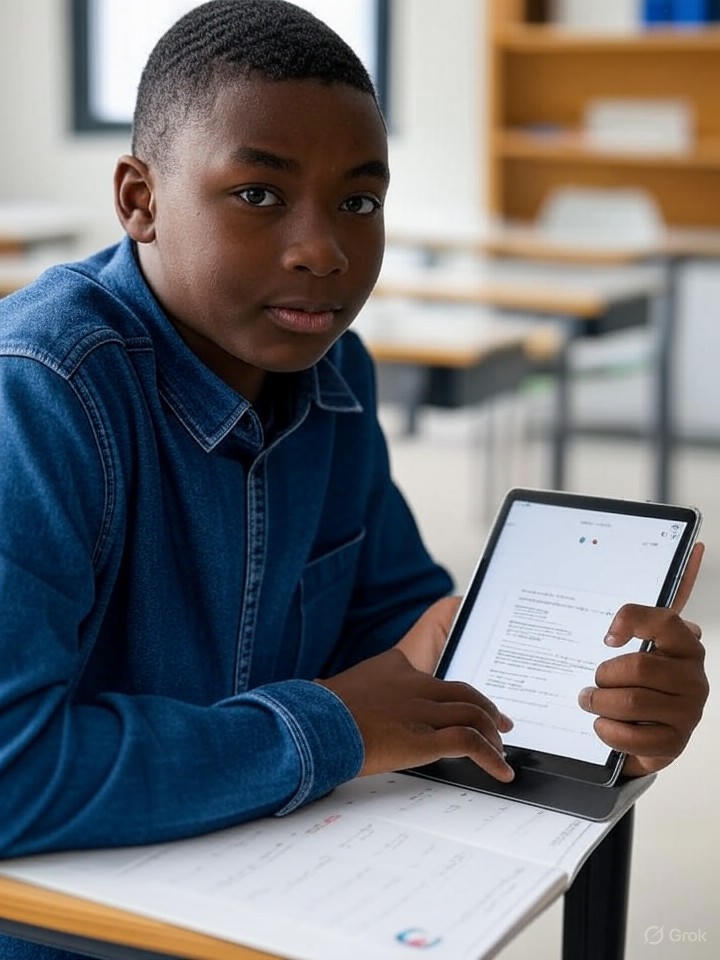
Google has launched a range of AI-powered tools within its Gemini app, aimed specifically at students in Europe, the Middle East, and Africa (EMEA). This initiative, announced in a recent post on the Google Blog, marks a significant step in the company’s commitment to enhancing educational technology. The new features are designed to reshape how learners engage with complex subjects, offering tailored guidance and interactive study aids.
The tools introduced include Guided Learning, which breaks down topics into manageable steps, focusing on the underlying principles rather than simple memorization. This expansion comes as educational disparities in the EMEA region are increasingly scrutinized, with many students facing challenges accessing quality learning resources due to geographical or infrastructural limitations.
According to Google’s announcements, these tools seamlessly integrate with the Gemini app, enabling students to create multimedia explanations, flashcards, and quizzes on demand. This move is part of a broader strategy to democratize education, as highlighted in discussions on social media platforms where educators have praised the personalized learning experiences offered.
Enhancing Accessibility for Diverse Learners
For students in regions like the Middle East and Africa, where internet connectivity can be inconsistent, the app’s offline capabilities are particularly valuable. Recent updates featured in Google’s education outreach blog ensure that learning can continue even in the absence of a stable internet connection. Industry experts observe that this expansion leverages Gemini’s global framework, introducing features such as visual responses that overlay AI insights onto real-world objects using phone cameras. Such innovations could significantly improve STEM education, where visual aids play a crucial role.
Moreover, Google is offering free Pro subscriptions to verified students, as outlined in coverage by LearnLoner. These subscriptions provide access to advanced features like Deep Research and Canvas, allowing for comprehensive exploration of various topics. Renewed for 2025, this offer also includes 100GB of cloud storage, making it an attractive option for resource-limited educational institutions. Sentiment on social media reflects excitement, with educators sharing their experiences of how these tools transform passive study into interactive learning sessions, potentially reshaping classroom dynamics.
Integration with Google Ecosystem
The Gemini app’s integration with Google Workspace for Education enhances its functionality, allowing teachers to assign AI-generated content directly to students. This includes custom “Gems” for specialized tutoring and NotebookLM overviews, features that were first introduced at the Google I/O 2025 conference and expanded upon in August. Observers note that this integration signals a shift towards AI-augmented curricula, where tools like instant quizzes adapt to individual student progress, thereby reducing teacher workload and improving educational outcomes.
While the adoption of AI in education presents numerous benefits, critics caution against over-reliance on these technologies. Concerns regarding potential biases in AI-generated content have emerged, as seen in discussions on social media about ethical AI use in educational contexts. In response, Google has implemented built-in content filters and youth onboarding processes to ensure that interactions with the app are age-appropriate. According to Influencer Marketing Hub, these safeguards are essential in regions with varying regulatory environments, from Europe’s stringent data privacy regulations to developing frameworks in Africa.
Looking ahead, this EMEA-focused expansion could set important precedents for the use of AI in education globally. With Gemini Live’s visual upgrades, students can receive real-time guidance on practical tasks, such as identifying historical artifacts or solving physics problems visually. Posts from users in the region highlight how these features empower self-directed learning, particularly in underserved areas.
Ultimately, Google’s substantial investment in education technology—evident in the launch of over 30 no-cost tools announced at ISTE 2025—positions the company as a leader in the edtech landscape. For industry insiders, the true potential lies in data-driven personalization, which could lead to measurable improvements in student engagement and retention across diverse markets. As adoption of these tools increases, further integrations are expected, blurring the lines between technology and traditional educational methods.







